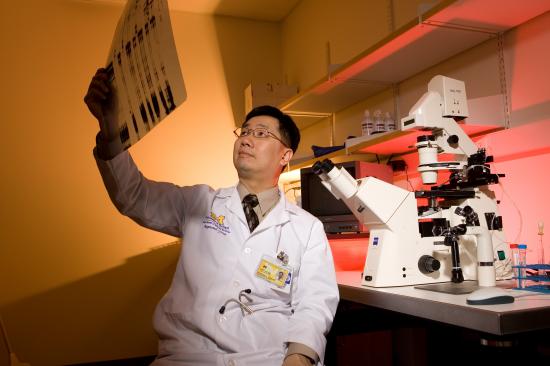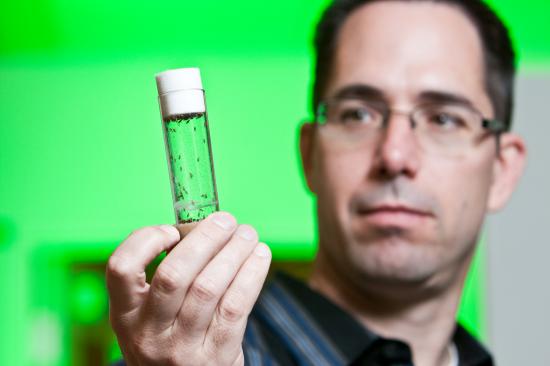The Division of Geriatric and Palliative Medicine is committed to developing multidisciplinary and translational initiatives in aging research and training to advance the state of knowledge regarding the medical problems of the older adult. Nearly 250 faculty from throughout the Medical School and the University participate in aging research totaling more than $75 million in NIH research support annually.
Learn More About Our Research
T32 Training Programs
Physician Scientist Training in Age-Related Diseases
The T32 Physician Scientist Training in Age-Related Diseases Program is designed to train exceptional physician-scientists for independent careers in age-related conditions. Learn more.
Research Training in Biogerontology Program
The T32 Research Training in Biogerontology Program is designed to prepare graduate students and postdoctoral fellows for careers as leaders in biological and biomedical aging research. Learn more.
Research Areas
The Michigan Medicine Geriatrics Center and the Institute of Gerontology (research arm of the Geriatrics Center) receive more grant support from the National Institute on Aging than any other institution in the country. Drawing on the strength and breadth of our faculty expertise, the Geriatrics Center and Institute of Gerontology support research in a broad range of areas related to aging. Research is being conducted across many disciplines in basic biomedical science, translational and clinical research, behavior and social studies, and health services delivery.
These investigations share a common goal of enhancing the independence of older adults by improving the understanding of the aging process and related health outcomes. To this end, research programs at the Geriatrics Center and Institute of Gerontology focus on key programmatic areas:
Biogerontology
Basic research studies are conducted at the cellular and molecular level by a team of approximately 70 faculty members, technicians, postdoctoral fellows, and graduate and undergraduate students. Their work examines the effects of aging on cell function, molecular pathways, and late-life diseases in human and animal model systems.
Biomechanics and Mobility
The Biomechanics Research Laboratory and Mobility Research Center study performance, mobility assessment, bladder and pelvic muscle coordination, and other aspects of biomechanical and musculoskeletal function, and provide quantitative biomechanical assessment to define positive outcomes in quantitative terms.
Aging Populations
A large body of work is being conducted by Institute of Gerontology faculty to better understand the risk factors and outcomes of diseases and conditions that affect older adults. Data from large population-based studies (such as the NIA-funded Health and Retirement Study and administrative datasets (such as Medicare and Medicaid) are being used for these studies.
The goal of these studies is to identify factors that might reduce the risk for chronic diseases and geriatric conditions in older adults, and improve the delivery, affordability, and quality of long-term care in both home-based and institutional settings. Researchers are working to assess care delivery in older populations to develop model approaches for delivering the most cost-effective care to the growing number of older adults.
Clinical and Translational Research
Translational research links basic and clinical investigations on aging and common health problems of older adults. Faculty are engaged in laboratory and clinical studies of a number of aging related diseases such as type 2 diabetes mellitus, hypertension, congestive heart failure, arthritis, depression, Alzheimer’s disease, and other neurologic disorders. Research is also being conducted on a variety of age-related conditions including frailty, infections, and multiple chronic conditions to develop new approaches and therapies for treatment.
Research Centers
Center to Accelerate Population Research in Alzheimer's
Faculty in our division are involved with and hold leadership roles at the Center to Accelerate Population Research in Alzheimer's (CAPRA). The Center focuses on science that informs government and health care organization actions to address the negative impacts of dementia on the health and financial well-being of individuals and the population.
Claude D. Pepper Older Americans Independence Center
The overall goals of the U-M Claude D. Pepper Older Americans Independence Center is to increase scientific knowledge that allows older adults to maintain or restore their independence, and to train future academic leaders in geriatrics. Drawing on the large base of research underway in the fields of geriatrics and gerontology at the University of Michigan, the U-M Pepper Center fosters collaborative, multidisciplinary research to integrate basic science, clinical science, and health services research relevant to the health care problems of older adults.
Geriatrics Center
Established in 1987 by the Regents of the University of Michigan, the Geriatrics Center is dedicated to providing outstanding educational opportunities, advancing research on the healthcare issues of older adults and providing exemplary multidisciplinary care and services for the older population.
Mobility Research Center
The Mobility Research Center (MRC), directed by Neil Alexander, MD, MS, houses studies of mobility and physical activity assessment and enhancement in older adults. The MRC leverages expertise from a number of disciplines (including geriatrics, biomechanics, exercise physiology, nursing, physical and occupational therapy, and neuropsychology) to examine the mechanisms underlying mobility problems and develop interventions to address these problems. Goals of the Center include:
- Identify the mechanisms underlying impaired mobility task performance
- Develop methods to measure impaired mobility performance
- Develop interventions to reduce impairments in mobility performance
- Provide an environment to facilitate interdisciplinary research
- Publicize methods of evaluation and intervention to health care professionals and caregivers
An important mission of the MRC, which is part of the U-M Geriatrics Center, is to serve as a center for undergraduate, graduate, and junior faculty trainees.
Paul F. Glenn Center for Biology of Aging Research
The U-M Paul F. Glenn Center for Biology of Aging Research, funded by the Glenn Foundation for Medical Research, is part of a consortium that is made up of seven distinguished research universities whose faculty members are making progress in understanding the biology of aging, and exploring ways to translate our growing knowledge about the aging process to benefit people as they grow older. The U-M Glenn Center is led by Richard Miller, MD, PhD.
VA Ann Arbor Geriatric Research, Education, and Clinical Center
The Division of Geriatric and Palliative Medicine and the U-M Geriatrics Center work closely with the VA Ann Arbor, conducting research, education, and clinical activities, through the Geriatric Research, Education, and Clinical Center (GRECC). Led by Neil Alexander, MD, MS, the goals of the GRECC are to:
- Conduct a comprehensive, aged-veteran relevant research program that includes research in biogerontology, neurodegenerative disease, age- and disease-related changes, clinical epidemiology, and health care research.
- Transmit knowledge to health professionals who provide care to aged veterans.
- Develop and evaluate model multidisciplinary geriatric care programs.



